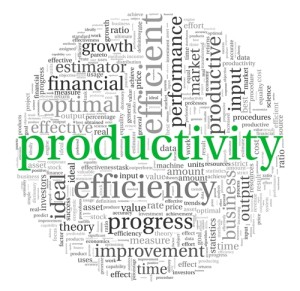 Let’s face it – successfully juggling more than a few life commitment takes some skills. In another post, I will detail my specific digital tools that help me stay focused and productive; tools like Evernote, Nozbe, and Dropbox. This article, however, is about some non-traditional tools that allow you to live each day with purpose and clarity:
Let’s face it – successfully juggling more than a few life commitment takes some skills. In another post, I will detail my specific digital tools that help me stay focused and productive; tools like Evernote, Nozbe, and Dropbox. This article, however, is about some non-traditional tools that allow you to live each day with purpose and clarity:
1. A day job that lets you time-shift or place-shift your work. Tim Ferris’ The 4-Hour Workweek has some great tips about how to be more productive away from the office than at the office. In my opinion, having full flexibility as to where and when you work is essential for a serious bi-vocational. If you are a key leader in a 2nd job, then that job will inevitably encroach on your day job. It is important, however, not to shortchange your day job for your 2nd job. To make this happen, you need huge amounts of discretion as to where and when you work on each job…and a large amount of integrity to give each job its due.
2. A routine built around essential priorities. When two jobs are pulling at you, you must build a schedule that puts first things first. For me, that means waking up around 4:45 am and putting coffee, prayer, Bible reading, meditation, exercise, financial management, day planning, journaling, and sermon prep FIRST. The only sure thing is the first thing. This puts self-care, soul-care, sermon-prep, and organization right at the front of my schedule…they almost always happen because they are first. I have other time slots set aside for blogging, family time, and other things that are my highest priorities. The ‘big rocks’ concept from Stephen Covey really is important. If you you don’t put the big rocks in the jar first, then they will never fit.
3. An off-shore virtual assistant. I must admit, I have only experimented with a VA for a few weeks, but I am totally hooked. For just over $100 per month, I get 2-3 hours of assistance per week from some friends in India. I use them to research sermon illustrations, transcribe ideas that I’ve dictated into Evernote, book travel reservations for my day job, send gifts, edit and proofread writing, and any number of other tasks that can be done WHILE I AM SLEEPING!
4. A well-prepared set of responses to common requests for ‘more’. People from both jobs will always ask for your time and energy. Frankly, there is less of you to give out because you are trying to maintain at least two lives. In advance, you need to learn how to say ‘no’ graciously. “I would really like to help you, but I’m really at my limit as far as new commitments go this week. Could I refer you to _____ to help you in the near future, or would you like to schedule some time with me next month?”
5. A support team. These are the 2-3 people who are closest to you who are watching your back for signs of burnout or misplaced priorities. In my case, I have an board of Elders at church and a super supportive family. They almost insist that I take time for hobbies and rest, and that I give each of my commitments their proper due.
Your turn – What non-traditional tools or structures are in your life that help you stay productive?
